Marlborough’s Victories
Marlborough’s Victories playing cards, first published in 1707, depict Marlborough's campaigns and the personalities involved.
Marlborough’s Victories playing cards, 1707

Marlborough's Victories playing cards, first published in 1707, depict Marlborough's campaigns and the personalities involved. The elaborately engraved illustrations cover a variety of European political issues and include portraits of royalty connected with the campaigns. The spade suit comprises almost entirely a series of savage, not to say scurrilous attacks upon the French king, Louis XIV. The pack also sheds an interesting light on the fall of the Duke from public favour.
A large number of educational and political packs were published during the 17th-18th centuries. It has not yet been discovered who was the original publisher of these cards, but nearly every pack of pictorial cards since the 1670s except those with marked political involvement were reprinted or reissued by a Fleet Street stationer, John Lenthall from about 1710 onwards. A modern facsimile of this very rare pack is part of a range published by Harry Margary.
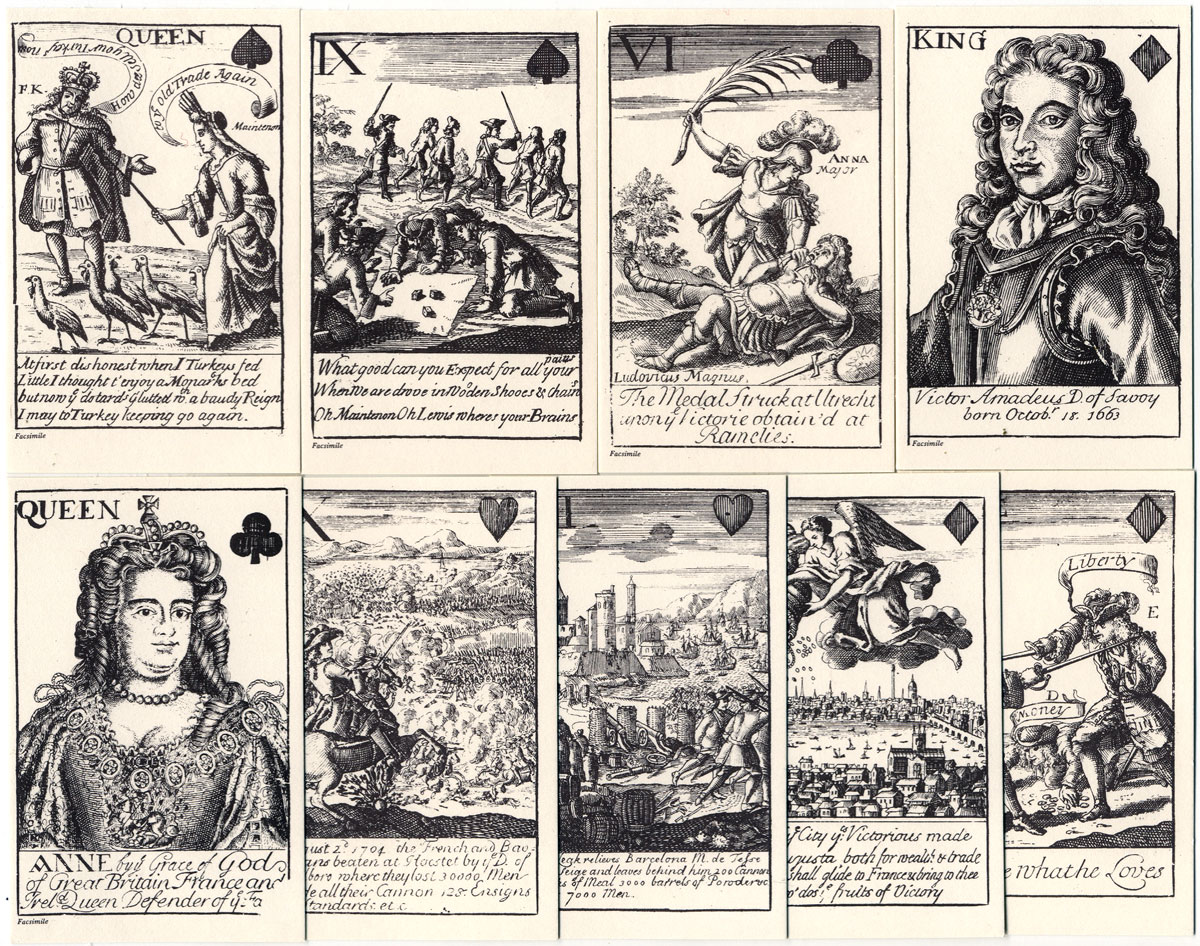
Above: cards from the facsimile edition courtesy Giles de Margary. These pictorially elaborate engraved set of playing cards demonstrate fully the adulation at that time accorded to the first Duke of Marlborough during his overseas campaigns. Facsimile packs can be ordered directly from www.harrymargary.com
Each card lettered with suit at top right and, at top left, either a Roman numeral or the word 'Knave / Queen / King", also with text, sometimes verse, in a panel at the bottom, and text within the images.
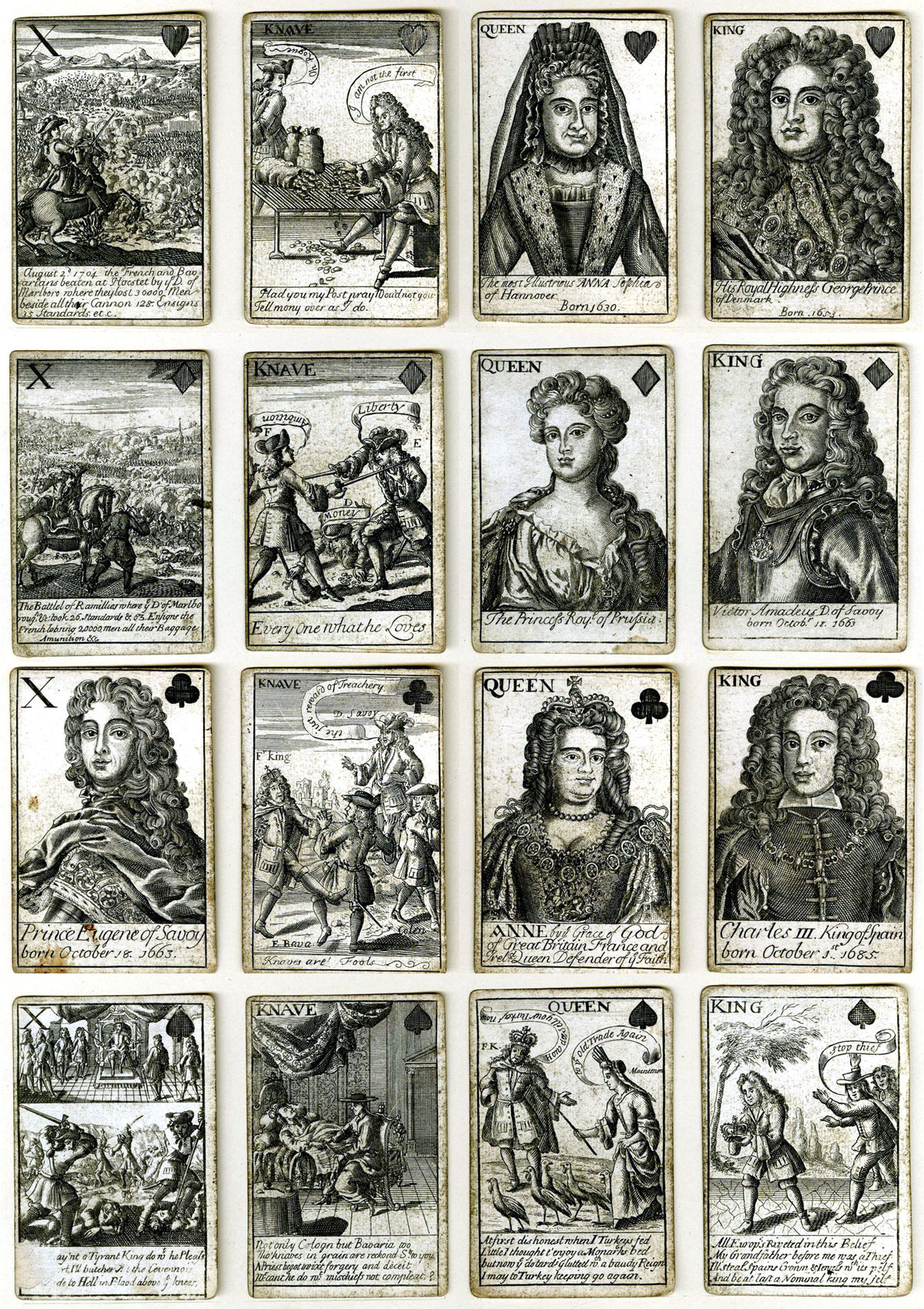
Above: 16 original playing cards from a pack of 52 commemorating the victories of the Duke of Marlborough in the War of the Spanish Succession. Spades satirise the French and Austrian enemy, the other three suits represent scenes from the campaigns, mostly in the Netherlands, also in Spain and Belgium; the aces, court and some numeral cards are portraits or satirical or allegorical scenes. © The Trustees of the British Museum • Museum number 1841,0508.4-55►
Willshire, W. H.: A Descriptive Catalogue of Playing and Other Cards in the British Museum, Trustees of the British Museum, 1876, reprint 1975. (English 193)
By Simon Wintle
Spain • Member since February 01, 1996 • Contact
I am the founder of The World of Playing Cards (est. 1996), a website dedicated to the history, artistry and cultural significance of playing cards and tarot. Over the years I have researched various areas of the subject, acquired and traded collections and contributed as a committee member of the IPCS and graphics editor of The Playing-Card journal. Having lived in Chile, England, Wales, and now Spain, these experiences have shaped my work and passion for playing cards. Amongst my achievements is producing a limited-edition replica of a 17th-century English pack using woodblocks and stencils—a labour of love. Today, the World of Playing Cards is a global collaborative project, with my son Adam serving as the technical driving force behind its development. His innovative efforts have helped shape the site into the thriving hub it is today. You are warmly invited to become a contributor and share your enthusiasm.

Leave a Reply
Your Name
Just nowRelated Articles
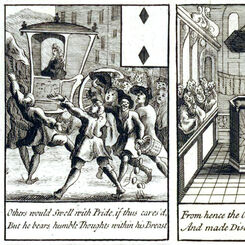
Dr Sacheverell
Dr. Henry Sacheverell's impeachment in 1710 sparked widespread public unrest and political upheaval,...
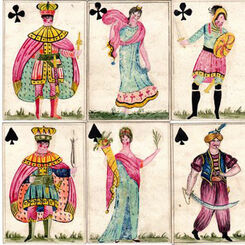
Prisoners of War
Hand-made playing cards by French prisoners of war in Porchester Castle, Hampshire, c.1796.

Victory Snap
Wartime Snap, a memoir of past times, c.1941.
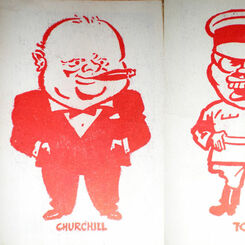
World Leaders Snap
World Leaders Snap published around WW2, c.1940.
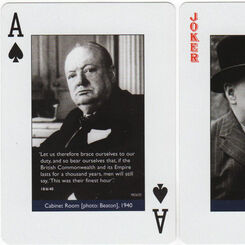
Churchill in WW2
Churchill ‘Walking with Destiny’ playing cards published by the Imperial War Museum.
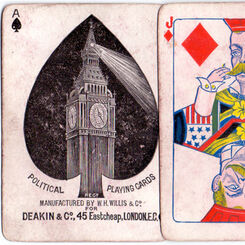
Deakin’s 3rd edition
Deakin’s Political Playing Cards 3rd edition, c.1888.
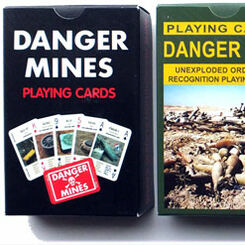
Ordnance Recognition
Ordnance Recognition Playing Cards cards designed to help people at risk from unexploded bombs
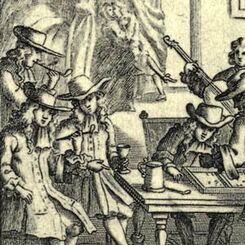
William Warter
William Warter's Proverbial Cards, which carry illustrations of old English proverbs, were first pub...
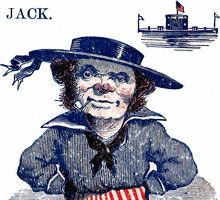
Army & Navy
Andrew Dougherty’s Army & Navy deck from the Civil War era, c.1865.
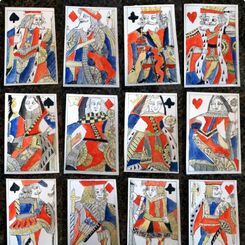
David James Binns
Hand-made “Tudor Playing Cards” by David James Binns, age 12.
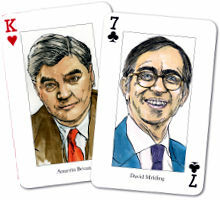
Political Figures
54 Welsh Politicians on a deck of playing cards...

Hand-made Spanish Suited Playing Cards
Decks are made on two-ply pasteboard which reproduces the tactile quality of antique cards.
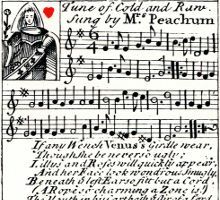
The Beggars’ Opera
The Beggars’ Opera Playing Cards were first published in 1728. The cards carry the words and music o...
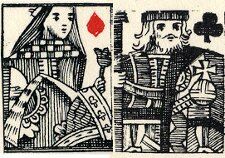
South Sea Bubble
The South Sea Bubble Playing Cards were first published in London by Thomas Bowles in 1720. The card...
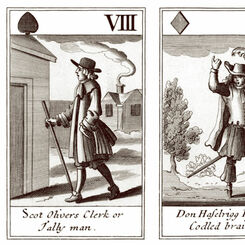
Knavery of the Rump, 1679
The Knavery of the Rump playing cards, first published in 1679, are a satirical portrayal of Oliver ...
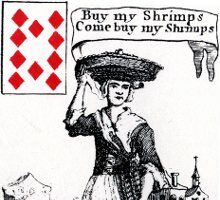
Cries of London
The cards were printed from copper plates, with the red suit symbols being applied later by stencil....
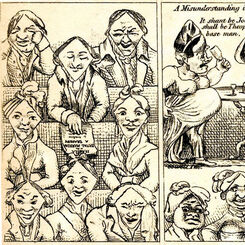
Transformation Playing Cards, 1811
Transformation playing cards, first published in 1811. Each card bears a picture in which the suit m...
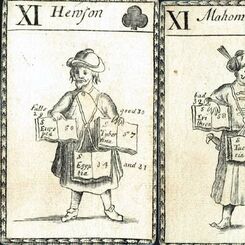
Fortune-Telling Cards
These Fortune-Telling cards, first published as early as 1690, were possibly the first pack of cards...
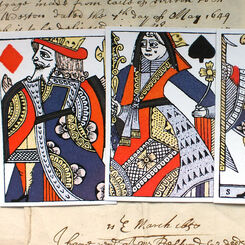
Hewson Replica Pack
Hand-made replica 17th century English playing cards, based on museum originals.
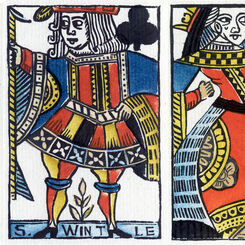
Woodblock and Stencil Playing Cards
Around 1987 I decided to make a pack of playing cards from woodblocks and coloured with stencils. I ...
Most Popular
Our top articles from the past 60 days


 Your comment here. Your comment here. Your comment here. Your comment here. Your comment here. Your comment here. Your comment here. Your comment here. Your comment here. Your comment here. Your comment here. Your comment here. Your comment here. Your comment here. Your comment here. Your comment here. Your comment here. Your comment here. Your comment here. Your comment here. Your comment here. Your comment here. Your comment here. Your comment here. Your comment here. Your comment here. Your comment here. Your comment here. Your comment here. Your comment here. Your comment here. Your comment here.
Your comment here. Your comment here. Your comment here. Your comment here. Your comment here. Your comment here. Your comment here. Your comment here. Your comment here. Your comment here. Your comment here. Your comment here. Your comment here. Your comment here. Your comment here. Your comment here. Your comment here. Your comment here. Your comment here. Your comment here. Your comment here. Your comment here. Your comment here. Your comment here. Your comment here. Your comment here. Your comment here. Your comment here. Your comment here. Your comment here. Your comment here. Your comment here.




















